Are you looking for cold weather spa and pool heat pumps? You should look no further than Arctic series cold weather heat pumps. Heat pump technology is highly considered in the pool industry because of its enormous cost savings.
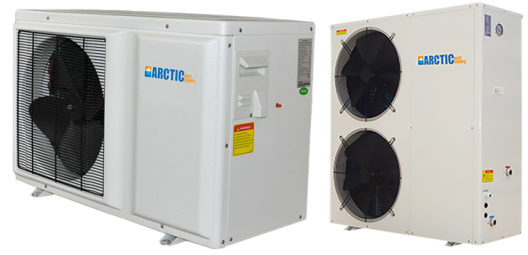
Most pool owners can save 70% or more from heat pumps in heating costs. But they have two major problems:
- The heat pumps work only in the pool swimming season. When the outdoor temperature goes down, they quickly lose their efficiency.
- They offer output of upper 80 degrees – which is too cold for hot tub temperature.
This is where Arctic series cold climate heat pumps come in. They can work in temperatures as low as 20 F (-7 F). If you live in a climate that exceeds -7 F, then, you can consider installing the Hybrid Heat Pump at home. It includes a backup 5.5 Kw Balboa Spa Pack that will provide additional heating power when required.
Why Makes Arctic Heat Pumps Ideal for Cold Weather?
There are so many reasons why Arctic Heat Pumps are considered as ideal
Air source pumps cater as an alternative way to heat your house, and could be the perfect solution if you wish to produce your own heat and possibly save cash on your utility bills.
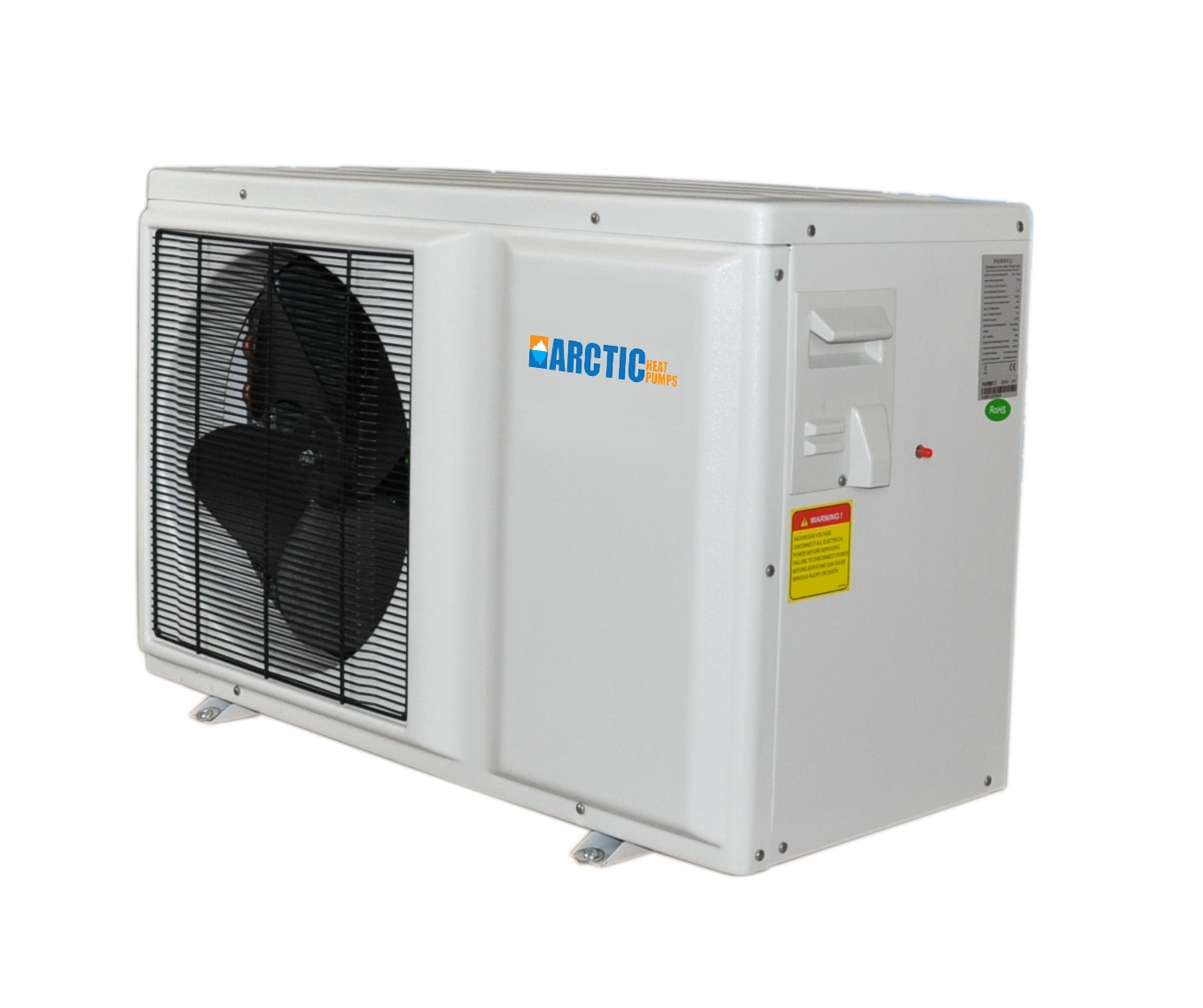
How an air source heat pump work?
An air source heat pump is generally installed outdoors at the back or side of a property. The pump requires electricity to operate, but it should employ less electrical energy than the heat it generates.
There’re 2 main kinds of air source heat pumps: air-to-water & air-to-heat. The air source heat pump functions a bit like a refrigerator in reverse. The unit consists of a compressor, a condenser and an evaporator. The air source heat pump absorb heat from the external air into a liquid at a low temperature, then the heat pump compressor increases the temperature of that heat. In the condenser, the hot fluid’s heat is shifted to your heating & hot-water circuits. So you can employ it to warm up your house.
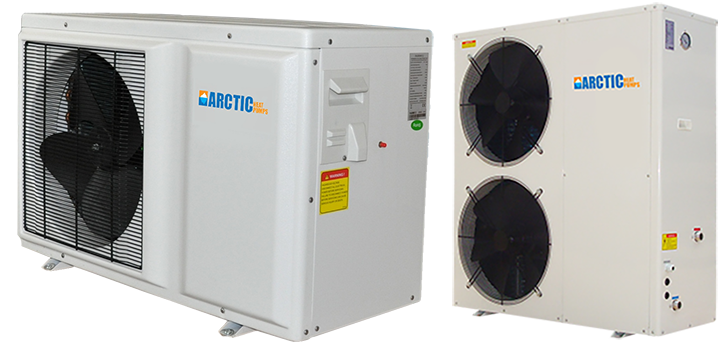
The most noteworthy benefits of an air source heat pump are the
Are you looking for the revolutionary heat pump system? If yes, then Arctic Heat Pumps stand out from the rest. Generally, Arctic Heat Pumps are considered as one of the best heat pumps for cold climates. They are perfectly engineered to deliver higher energy efficiency at half of the price of a traditional geothermal heat pump.
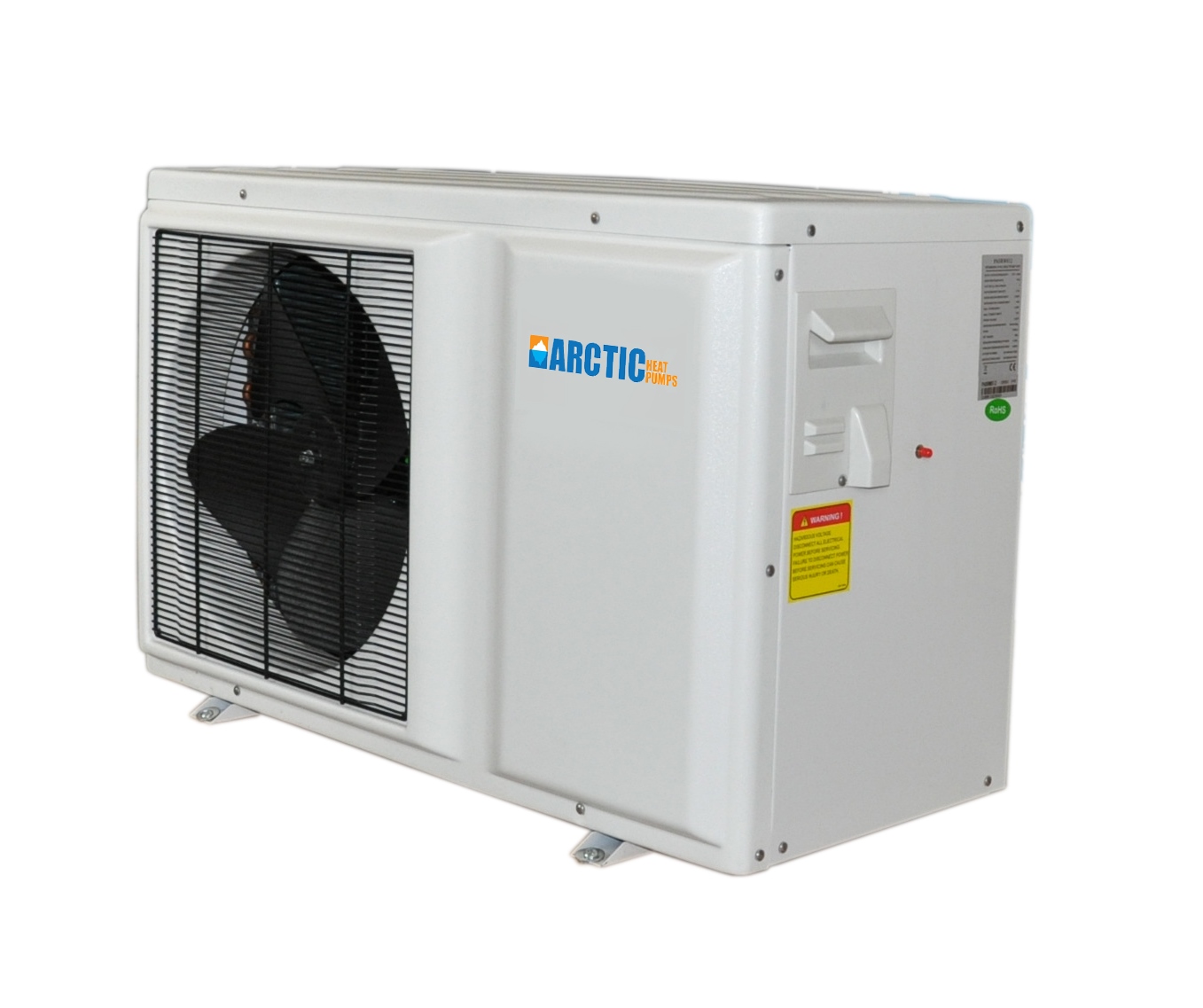
The heat pumps from Arctic Series come with variable speed pumps, European Sanhua Valves, Panasonic EVI DC Inverter Compressors, and Chico Digital Control System. All of them are harnessed directly into fully weatherproof housing.
Why Do Arctic Heat Pumps Work Really Well on Cold Climates?
Integrated Heating –
Arctic Heat Pump can be able to control the entire heating and cooling needs including residential hot water. The heat pump can integrate with different heating sources like radiant floor heater or cooler, central air handlers for forced air, split fan coils for heating individual rooms, and low temperature radiators.
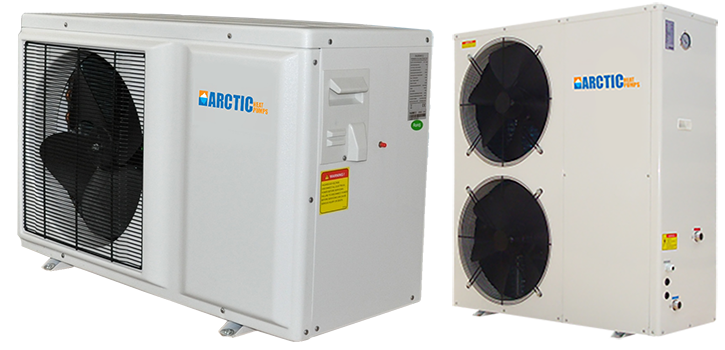
You can integrate to any pool or hot tub
Installing a heat pump is the best thing you can do to ensure you’ve the most capable technology to fulfill your home’s heating & cooling requirements. Making proper use of your heat pump and maintaining it regularly will assure you get the best performance out of it while enjoying great saving in your utility bills. Listed below are a few tips on how to make the most of your heat pump.
/image%2F2418738%2F20201028%2Fob_802e85_18664154-1288663861248226-479299437047.png)
Don’t use “Auto” Mode:
Rather than “Automatic” mode, set the heat pump mode to “cool” during the summer and “Heat” in the winter. Automatic mode will not wait for any command to switch between cooling and heating according to indoor temperatures. Your heat pump could start heating on a cool summer night or start cooling on a sunny winter afternoon. As soon as you find a comfy temperature setting on either “cool” or “heat” mode, you can set it and enjoy maximum efficiency.
/image%2F2418738%2F20201028%2Fob_f0bf0a_e4v8ftb.jpg)
Give regular maintenance & inspection a priority:
Regular upkeep & inspection will make sure your heat pump Maine remains in peak
Installing a heat pump is a major decision that most homeowners need to consider carefully. When it comes to installing a heat pump, the main question that may come to your mind whether to install a heat pump with an inverter drive unit or a fixed output.

What’s the difference between a fixed output and inverter heat pump?
The difference between these two types of heat pumps lies in how they supply the energy required from the heat pump to fulfill the heating requirements of a property.
A fixed output heat pump functions by unceasingly either being turned on or tuned off. When turned on, a fixed output heat pump runs at 100 percent ability to fulfil your heating requirement. It’ll continue to do this until the heat demand is fulfilled.
However, an inverter heat pump employs an adjustable speed compressor which curbs its output by increasing or reducing its speed to match exactly the heat needs of the property as the outdoor air temperature changes.
When the heat demand is lower the heat
You may already know, heat pumps are significantly more energy-efficient than simple electric heaters. The traditional heat pumps that are in use for many years are non-inverter heat pump. But with the development of recent years, the technology of air source heat pump has also been upgraded greatly, of which DC inverter air source heat pump has gradually become the mainstream choice of businesses and families. So, why is the DC inverter heat pump becoming more and more popular?
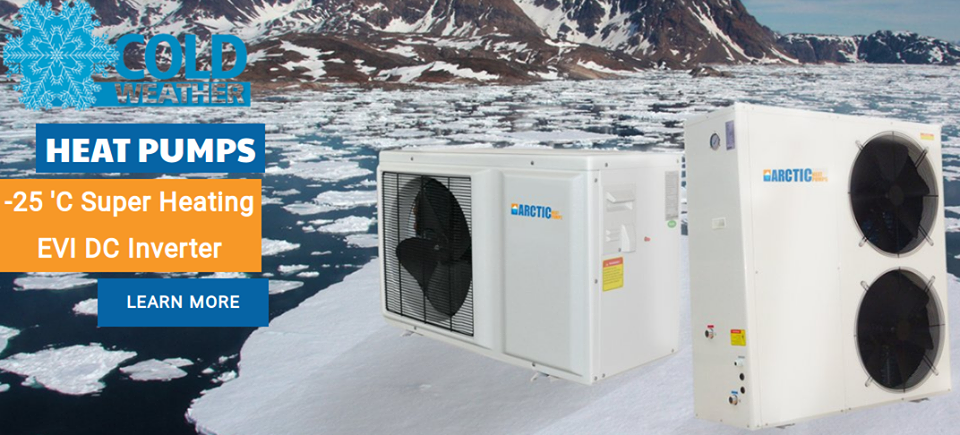
This post will help you understand the benefits of the DC inverter heat pump before you start searching for a reputable DC inverter heat pump supplier online.
INVERTER HEAT PUMP TECHNOLOGY EXPLAINED
When running a normal air conditioner, the AC cycles between an on and off state. It turns on for a frame of time and, when the home gets cooled sufficiently, it tuns off. And when the air gradually returns to match the outdoor temperature, the AC turns back on again. This is how heaters and air conditioners have been
Are you looking to buy the high-performance and cost-effective heat pumps available on the market? If yes, then you should look no further than Arctic Heat Pump for hot water. This heat pump is perfectly engineered and designed to make it the most efficient cold climate heat pump on the market. It’s available at half of the price of a traditional geothermal heat pump.
Check out the reasons why you should invest in Arctic series heat pump:
Integrated Heating –
Arctic heat pump is able to control entire heating and cooling requirements of every home including the hot water at home. This heat pump integrates with different heating sources like radiant floor heating or cooling, central air handlers for forced air, split fan coils for room heating, and low temperature radiators. It can integrate to any hot tub or pool to deliver enormous amount of heat by using titanium heat exchangers.
This heat pump comes with the Out Door Unit (ODR) which has everything you need in one case (monobloc). It
Heat pump technology has been highly adopted in the pool industry for its significant cost savings. Most pool heat pumps can save pool owners over 70% in heating costs. But, these heat pumps have two main problems:
- These heat pumps work during the swimming pool season and lose their efficiency quickly as the outdoor temperature minimizes.
- Their output is over 80 degrees – which is too cold for hot tub temperature.
Until now most spa owners adapt standard electric heating systems. But nowadays electricity is becoming more and more expensive and will continue to go further. However, the Arctic series air source heat pump comes in three sizes.

The smaller SPA-025ZA is perfect to use for hot tub and spa owners. The heat pump produces 9KW – high temperature rating and 5KW – low temperature rating of heat energy. This smaller heat pump can deliver the temperature rating in temperatures as low as 20 F (-7C). It provides homeowners with operational cost savings over ordinary spa heaters.
Introducing Low Temperature Heat Pumps –
Are you looking for low temperature heat pumps on the market? If yes, then you should choose no other than Arctic series air-to-water heat pumps that work in cold weather. They are considered as highly affordable and most advanced air source low temperature heat pumps on the market.
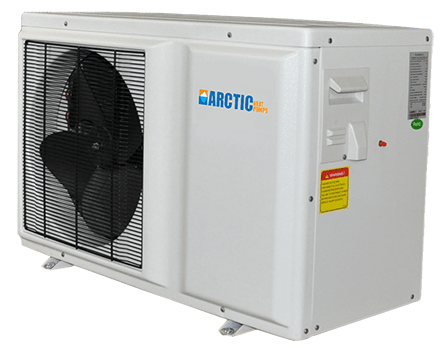
These heat pumps are capable of heating your home, office, shop, pool and hot tub. They use industry-standard EVI (Enhanced Vapor Injection) compressors with DC variable speed input. The heat pumps operate continuously in weather as low as -30 C (-22F).
The low temperature heat pumps will heat, cool your home or pool during the summer while providing enormous amount of heat for residential hot water or pools and hot tubs. These heat pumps are both chillers and heaters in a single unit.
Features of Arctic Air-to-Water Low Temperature Heat Pumps
Intelligent Defrosting Solution
Using the intelligent defrosting, the Arctic cold weather heat pumps incorporate pressure sliding
Are you looking for the right alternative to gas or electric heating system? And want to avoid high energy bills? Switching to a more eco-friendly option is ideal for your needs. This is where; an air source heat pump for hot water comes in. Take a look at this post and know better about air source heat pump for hot water before making a final decision:
Generally, air source heat pumps (ASHPs) work by transferring heat, absorbed from the outside air to indoor. They provide ample amount of hot water to home or an office through the wet central heating systems to heat radiators.

The working principle of heat pumps is similar to a refrigerator as they absorb heat from the surrounding and transfer it to another medium. Some air source heat pumps can be used as a cooling alternative during the summer months. They are installed outside the building with sufficient space.

Why Do Use Air Source Heat Pumps for Hot Water?
The most important reasons behind using an air source for hot water at home

- -25C heat pump
- air source heat pump
- chiller for pools
- Chillers for Swimming Pools
- cold weather heat pumps
- Heat Load Design
- Heat Load Design
- Heat Loss Design Services
- Heat Pump
- Heat Pump Cold Weather
- Heat Pump for Hot Water
- Heat Pumps
- heat pumps in Nova Scotia
- Hydronic Air Handler
- Inverter Heat Pump
- Inverter Heat Pump
- radiant floor cooling
- radiant floor Design
- radiant floor Design
- radiant floor Design
- Spa Heat Pump
- Swimming Pools